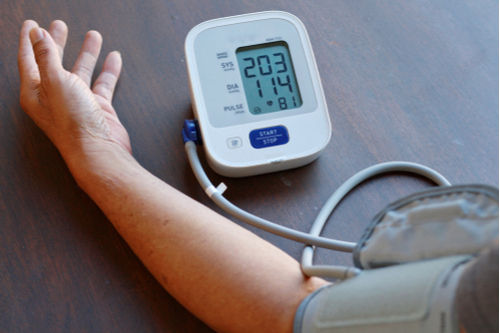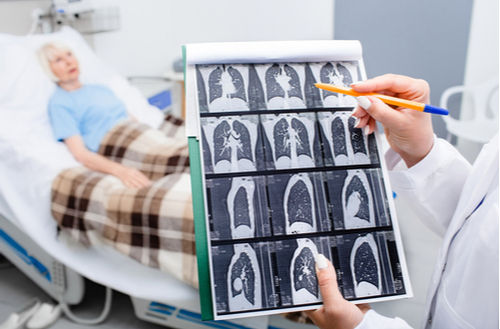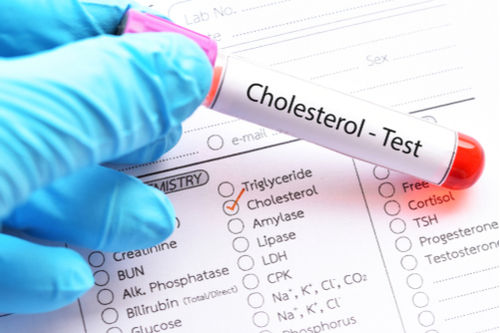General Health
5 Essential Diagnostic Tests for Men Aged 35 Years and Above
5 min read
By Apollo 24|7, Published on - 24 May 2022, Updated on - 14 June 2023
Share this article
0
54 likes

Some people say that men have always had it easy. Well, that is certainly not the case when it comes to health. There are quite a few diseases and conditions that affect men disproportionately more than women, especially after the age of 35 years. Thankfully, it is possible to detect many of these conditions early on.
Since early diagnosis is generally associated with better health outcomes, men should consider getting themselves screened for some of the most common conditions that affect them. The article explains the 5 essential screening tests for men aged 35 years and older in detail below.
1. Hypertension Screening
Hypertension, commonly called high blood pressure, is a medical condition in which the force exerted by the circulating blood against the walls of arteries is higher than usual. While the condition doesn’t cause any noticeable symptoms initially, it can damage your arteries continuously, increasing the risk of heart disease, stroke, and kidney failure. Experts say the risk of hypertension is relatively higher for men than women at least till the age of 64. However, timely detection can help in the effective management of hypertension and lower the risk of complications.
A healthy adult male should have blood pressure less than 120/80 mmHg. You may have high blood pressure if your two BP readings are greater than 120/80 mmHg. Experts say that healthy male adults aged 35 years and above should get their blood pressure checked every two years. On the other hand, those diagnosed with hypertension may have to get their blood pressure checked more often.

2. Type 2 Diabetes Screening
Diabetes is a medical condition characterized by elevated glucose (sugar) levels in the blood. The condition is often a result of the inability of the body to produce enough insulin, a hormone that plays a key role in the regulation of blood glucose levels, and insulin resistance i.e. the poor response of the cells to insulin. Uncontrolled diabetes is a major risk factor for heart disease, stroke, nerve damage, kidney disease, vision problems, etc. Fortunately, the condition can be controlled with diet, exercise, weight management, and medications. However, timely diagnosis is crucial.
A fasting plasma glucose test is commonly used to measure blood glucose levels. A physician may also recommend an HbA1C blood test to assess how well your body has regulated blood glucose levels over time. To reduce their risk of severe diabetes complications, every male adult 35 years and over should get tested for diabetes. Some men, such as those with high BMI, cholesterol and hypertension, should begin diabetes screening earlier and more often.

3. Cholesterol Screening
Cholesterol is a fat-like substance produced naturally by the liver. It is required for the production of cell membranes, some hormones, and vitamin D. However, too much cholesterol in the bloodstream can contribute to the accumulation of plaque in the arteries. Over time, this buildup can restrict the flow of blood in the arteries and increase the risk of heart disease, heart attack, and stroke. It is recommended that men aged 35 years and older get cholesterol screening done every five years.
A cholesterol screening will check your levels of total cholesterol, HDL or High-Density Lipoproteins (good cholesterol), and LDL or Low-Density Lipoproteins (bad cholesterol). You may be required to fast for 9 to 12 hours before the screening test. The test results will compare the levels of cholesterol against the reference range. According to experts, your LDL and total cholesterol levels should not be more than 100 mg/dL (milligram/decilitre) and 200 mg/dL, respectively. On the other hand, it is good to have HDL levels above 40 mg/dL.
4. Lung Cancer Screening
Lung cancer is one of the most common cancers found in men. While smoking and passive smoking are the major causes of lung cancer, other factors such as prolonged exposure to radon, asbestos, arsenic, nickel and chromium can also increase the risk of lung cancer. The most effective way of lowering the risk of lung cancer is smoking cessation and avoiding any kind of exposure to smoke, however, getting tested against it would also reduce your risk significantly. Lung cancer screening involves a low-dose computed tomography (LDCT) scan, a type of X-ray that clicks detailed pictures of your lungs to look for signs of cancer. Men aged 35 years and above, especially those who smoke or have quit smoking in the last 15 years, should get screened for lung cancer annually.

5. Prostate Cancer Screening
As the name suggests, prostate cancer affects the prostate, a small walnut-shaped gland that is found only in men. The main function of the gland is to produce seminal fluid that preserves sperms. As you age, cells of the prostate gland develop changes in the DNA which may increase the risk of prostate cancer. The risk is especially high for men aged 50 years and above.
Prostate cancer generally develops slowly, does not cause serious harm, and can be successfully treated. However, in some cases, it may spread rapidly and require aggressive treatment. An effective way to avoid complications linked to prostate cancer is to get screened. Screenings for prostate cancer include a digital rectal exam (DRE) and prostate-specific antigen (PSA) blood test.

It is possible to avoid serious complications associated with the above-mentioned conditions by getting screened early on. Early detection can pave the way for effective treatment and better health results. Don’t forget to consult a qualified physician to know more about these tests.
Medically reviewed by Dr Sonia Bhatt
General Health
Leave Comment
Recommended for you

General Health
Thyroid Treatment: Can Thyroid Disorders Be Cured Completely?
Thyroid disorders, including hyperthyroidism and hypothyroidism, can be treated and improved with the help of a proper treatment plan. Find out more about how these disorders are treated and what you can do to keep them under control.

General Health
Typhoid Fever: Cause, Symptoms, Diagnosis, Treatment & Prevention
Learn about the common symptoms of typhoid fever, including fever, headache, abdominal pain, and diarrhoea. Stay informed and protect yourself!

General Health
Dabur Chyawanprash: A Natural Remedy For Seasonal Allergies
Discover how Dabur Chyawanprash, a traditional Ayurvedic formulation, can strengthen your immune system and protect you from illnesses. Learn about the latest guidelines, new technologies, and lifestyle factors to enhance your overall well-being.
Subscribe
Sign up for our free Health Library Daily Newsletter
Get doctor-approved health tips, news, and more.
Visual Stories

Plant-based Foods That Are a Great Source of Iron
Tap to continue exploring
Recommended for you

General Health
Thyroid Treatment: Can Thyroid Disorders Be Cured Completely?
Thyroid disorders, including hyperthyroidism and hypothyroidism, can be treated and improved with the help of a proper treatment plan. Find out more about how these disorders are treated and what you can do to keep them under control.

General Health
Typhoid Fever: Cause, Symptoms, Diagnosis, Treatment & Prevention
Learn about the common symptoms of typhoid fever, including fever, headache, abdominal pain, and diarrhoea. Stay informed and protect yourself!

General Health
Dabur Chyawanprash: A Natural Remedy For Seasonal Allergies
Discover how Dabur Chyawanprash, a traditional Ayurvedic formulation, can strengthen your immune system and protect you from illnesses. Learn about the latest guidelines, new technologies, and lifestyle factors to enhance your overall well-being.
